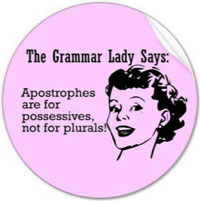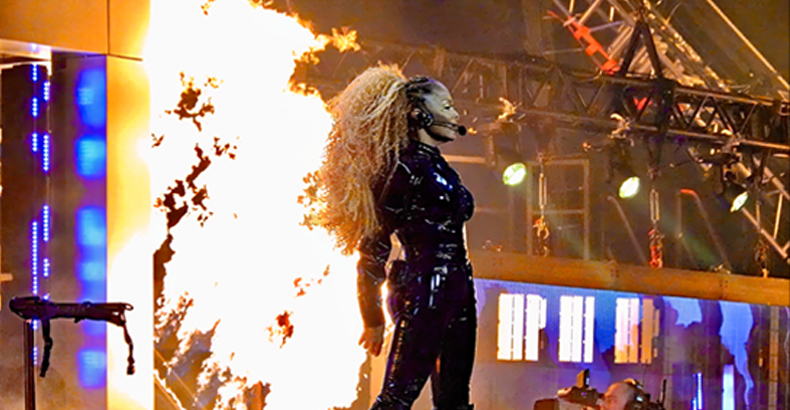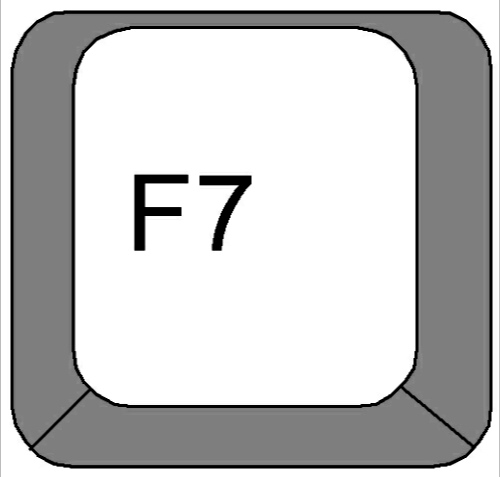 |
I’m not sure why, but perhaps one of my greatest pet peeves is misuse of language. It makes me sad – not only because these little things say so much about the deplorable state of education in our country, but also because, in most cases, they are so simple to avoid.
For the past couple of decades, at least, F7 has been a key on every computer keyboard. Hit F7, and automatically your computer will scan for spelling and grammatical errors. No muss – no fuss. There’s no reason for these to even exist in this day and age. And yet, like my favorite animated French-Canadian mouse, Savoir-Faire, they’re everywhere.
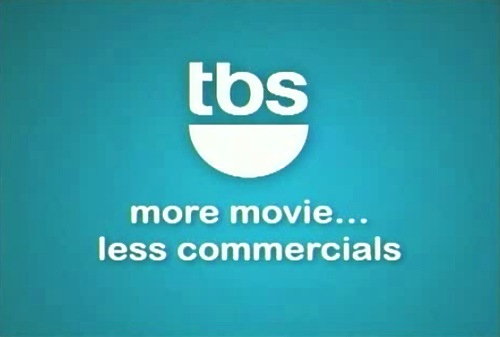 |
And it’s not just individuals, but entire television networks. Yes, I’m talking about you, TBS and TNT! Between the reruns of amazing shows such as Law & Order, Cold Case, and Bones, and incredible original programming like The Closer and Leverage, my DVR records more hours of programming on TNT than perhaps any other network. However, the network’s campaign about the ratio of commercial advertising to film when it runs movies on weekends makes me cringe. “More movie... less commercials” is just not correct. I know, I know, the expression “more or less” is easy to grasp, but in the simplest of terms, the word “less” is utilized in situations where the quantities cannot be expressed with an exact figure; and since one can obviously count the number of commercials that appear during a televised screening of Lord of the Rings: Return of the King, it’s just plain wrong. Sorry. And while “More movie... fewer commercials” doesn’t exactly roll off the tongue, perhaps – instead of trying for a mass dumbing-down of America, you could’ve tried another tagline. “More movie... less advertising” perhaps..? I don’t know. That’s why you have an advertising agency to which you pay millions of dollars each year.
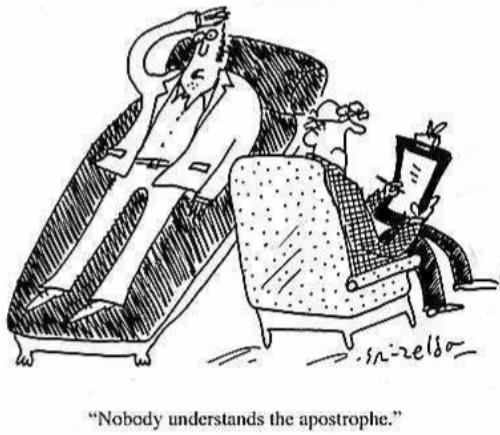 |
Sure, we use vernacular speech to talk amongst ourselves. I, for one, use a preponderance of it in my writing. But regardless of whether I’m using Tranny Talk, Y’at, Ebonics, Yiddish, or good ol’ American Street Slang, I adhere to the basics of grammar. And while I could go on forever with things like the proper use of “lie” versus “lay” or “affect” versus “effect,” I’ve got three simple things that just get stuck in my craw, whenever I come across them...
● When a speaker says “I” instead of “me” in a (poor) attempt to sound more erudite, when – in fact – as an objective pronoun, “me” should be used any time it is the target of the verb or object of the preposition. Here’s a simple hint: if deciding between “him and me” or “he and I” just use the “I” or the “me” – your ear will tell you which sounds correct. To wit – “Jacob and I waited for Eli to meet us.” (Drop the “Jacob and” and it’s “I waited for Eli,” which is correct.) However, “Eli was meeting Jacob and me.” (Now, drop the “Jacob and” and it’s “Eli was meeting me,” because “Eli was meeting I” sounds absurd.) Easy peasy, right? Well, you’d think so...
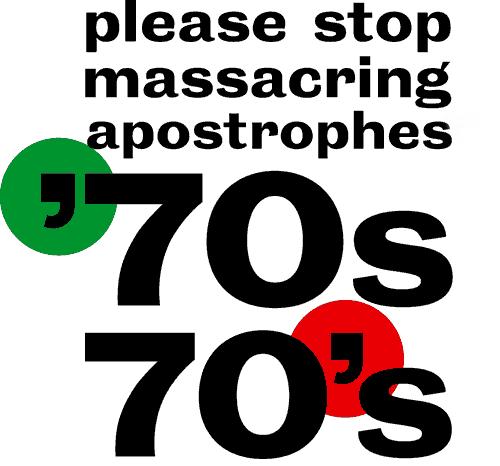 |
● Television shows and movies about police, coroners, crime scene units, etc., in which the writers have the actors say “hung” instead of “hanged” to describe the dead person swinging from a noose. This is crazy! The man might very well have been hung, like the proverbial mule, to the delight and/or chagrin of his spouse; but unless he was suspended on the wall from a picture-hook, in an art exhibit, the reason he isn’t breathing anymore is that he was hanged. Whether or not he hanged himself or was hanged by another – well, therein usually lies the plot of the show... If the plot is about how he was hung, you’re most likely viewing a different kind of movie.
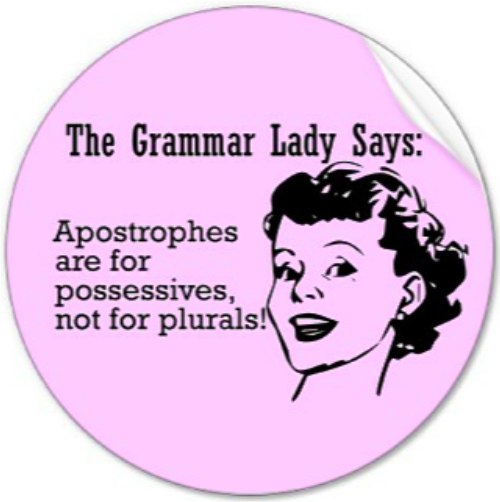 |
● Erroneous use of the apostrophe s (‘s). This can be broken down to one very simple question: are you demonstrating plurality or possession? If you are a nightclub and have multiple rooms with someone spinning records in each, you might advertise that you have “Four DJs” – whereas if you are talking about something (whether material or abstract), you might say to a friend “That DJ’s music is great!” When talking about a decade, the apostrophe goes BEFORE the number (as it is a contraction of the decade - i.e. '70s for 1970s). If using all-caps, then use a lower-case “s” (i.e. “My bank has multiple ATMs.”) The ONLY exception to this is the word “it’s” as it’s a contraction for the words “it” and “is” (and as such, the possessive loses its apostrophe). In the UK, there’s even an organization, the Apostrophe Protection Society, whose founder received an Ig Nobel prize at Harvard University, in 2001, for his mission “to protect, promote and defend the differences between plural and possessive.”
God bless ‘im!
Good Grammar
Get into it!

